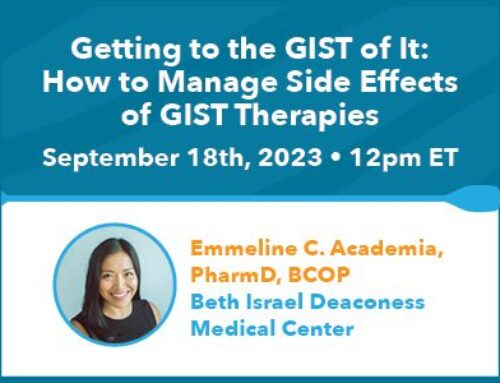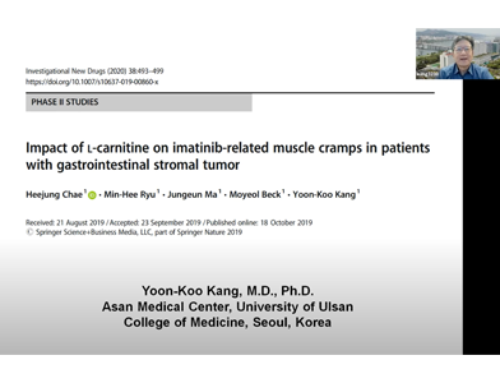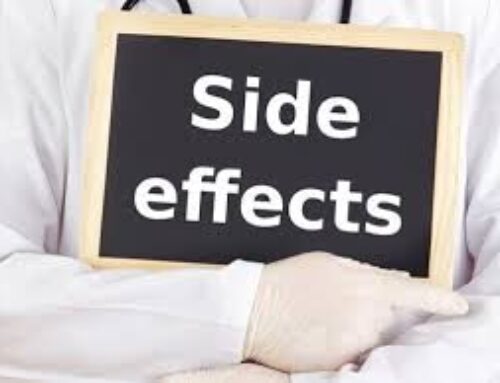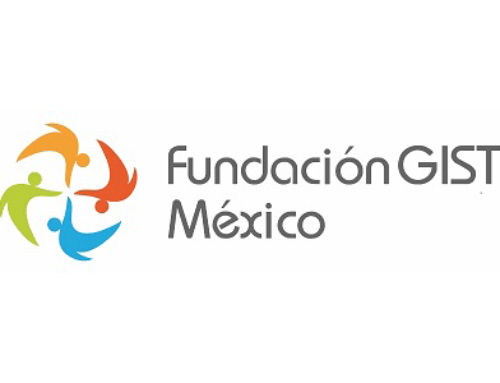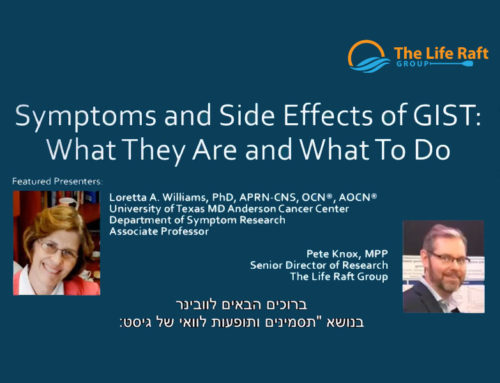updated 4/9/2020
There are multiple causes and treatments for Anemia. This condition occurs when blood doesn’t have enough healthy red blood cells or have enough hemoglobin, you can tire quickly or feel weak. This condition is called anemia. The fatigue that comes with anemia can lead to a decreased quality of life. Some fatigue is not related to anemia. Anemia has three broad causes; blood loss, decreased blood cell production and increased blood cell destruction. The first two are the most relevant for GIST patients.
Blood Loss
Blood loss can be rapid and severe (acute) or it can occur more slowly over time. Acute blood loss is a medical emergency and is generally treated by attempting to stop the blood loss and transfusion. Chronic blood loss is more common for GIST patients. Many GIST patients are diagnosed with anemia due to chronic blood loss. In addition to the requirement to make more red blood cells to replace those lost, one of the biggest problems caused by chronic bleeding is a loss of iron. Iron is needed to make hemoglobin, the oxygen carrying part of the blood. Anemia caused by chronic blood loss is treated by attempting to find and correct the source of the bleeding and replacement of iron. Iron tables may be given orally, however these may cause nausea.
Some blood loss is frequent in GIST, especially prior to diagnosis. Surgery to remove a primary tumor may remove the source of the blood loss in many patients, but chronic blood loss can continue in some patients that have remaining tumors.
Decreased blood cell production
The body needs a number of things to produce red blood cells. These include nutrients; iron, vitamin B12 and folic acid, but also trace amounts of vitamin C, riboflavin and copper. The body also needs hormones, especially erythropoietin, a hormone that is produced in the kidney.
Nutrients
As previously discussed, iron deficiency can result from blood loss. But Gastrectomy (the surgical removal of all or a part of the stomach) can also result in malabsorption of several nutrients including iron, vitamin B12, folic acid and others. Deficiencies of these nutrients can be detected by blood tests and corrected by supplementation.
Hormones
The body has a complex signaling network designed to signal the body to make the proper amount of red blood cells, hemoglobin, etc. Cancer drugs can interfere with this signaling. Notably, the drugs currently used to treat GIST all inhibit the KIT protein (aka c-kit). KIT is important not only in GIST signaling, but also in the development of blood cells including red blood cells. As a result treatment of GIST with KIT inhibitors has an unwanted side effect; suppression of blood cell production. Fortunately, this is not severe for most patients; however it appears to be worse for some patients than others.
Erythropoietin is a hormone that is produced in the kidneys. It stimulates the production of red blood cells. Synthetic forms of erythropoietin are produced as drugs to stimulate red blood cell production. These include various brand name/variations such as Procrit (epoetin alfa) and Aranesp (darbepoetin alfa). These drugs were commonly prescribed in the past to treat anemia, however they have come under increasing criticism due to reports of serious side effects in some cases. These include an increased risk of heart attacks, stroke, heart failure and death. An increased risk of progression of some cancers has also been reported. Due to these risks, these drugs should be used with caution and only after careful review with a physician of the risks versus the benefits. They are sometimes used to treat anemia in GIST patients that have a favorable benefit to risk profile.
Treatment should be directed at the cause of the anemia, e.g., it won’t help to treat anemia that is caused by a vitamin B12 deficiency with iron. Supplementation can include pills with B12 and intrinsic factor or B12 injections.
Disclaimer:
The information presented in this article and on this website has been gathered by the Life Raft Group staff and should not be used as a substitute for consultation with a medical physician who is experienced with GIST.

